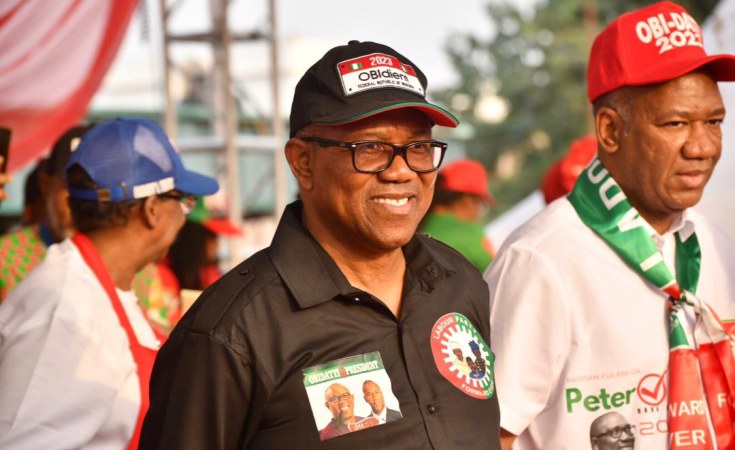Voting is still underway in some parts of Nigeria, hours after the official close of polling stations. Attacks and acts of vandalism prevented some voters from casting ballots for a new president and government.
Polls in Nigeria's general election closed at 13:30 GMT. However, attacks on electoral facilities and vandalism of ballot boxes in Lagos and Bayelsa states hindered the process.
Electoral authorities gave voters more time in areas where delays were experienced and pledged to ensure that voters who had been waiting would have until Sunday to cast their ballots.
Calm in Abuja
In the capital, Abuja, the situation at polling stations visited by DW correspondents was calm. Voting materials at some polling stations did not arrive on time, while some voters could not find their names on the voters' register and left venues in frustration.
"I have been to two polling stations in my neighborhood, but I can't find my name," Chinyere, a resident of Nyanya on the city's outskirts, told DW.
"I can't keep on walking from one place to another. I'm tired, as you can see," a visibly heavy pregnant Chinyere added.
Some of the reasons polling stations didn't open on time are the perennial logistics during Nigeria's elections, the chairman of the Independent Electoral Commission (INEC), Mahmood Yakubu, told a press briefing.
Election body cites security challenges
"Another contributing factor was insecurity. For instance, INEC couldn't deploy in Rivers state because bandits attacked electoral offices," Yakubu told a press briefing.
In Katsina state, thugs attacked electoral officials and stole six of the Biomodal Voter Accreditation System (BVAS) machines that were used to capture biometric data.
However, the INEC chief said, "security agencies could only recover three of the six BVAS devices. Police are on the hunt for the thugs."
A mortar attack at INEC facilities in Gwoza, Borno state, caused injuries to many people who are now hospitalized, Yakubu said.
"We will continue to protect the process to ensure that the electoral process is conducted freely and fairly."
Edited by Benita van Eyssen


